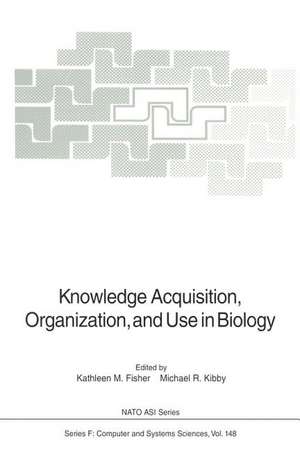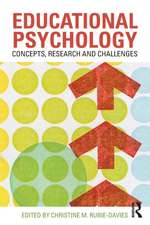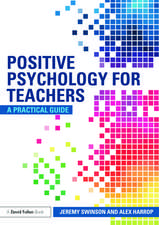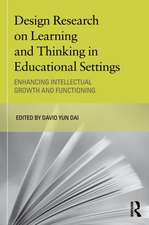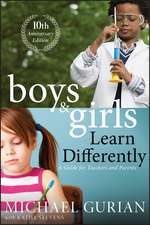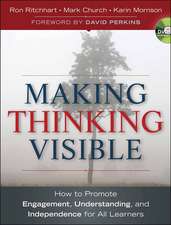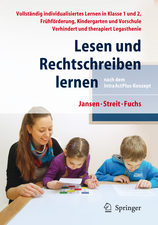Knowledge Acquisition, Organization, and Use in Biology: Proceedings of the NATO Advanced Research Workshop on Biology Knowledge: Its Acquisition, Organization, and Use, held in Glasgow, Scotland, June 14–18, 1992: NATO ASI Subseries F:, cartea 148
Editat de Kathleen M. Fisher, Michael R. Kibbyen Limba Engleză Paperback – 23 sep 2011
Din seria NATO ASI Subseries F:
- 20%
 Preț: 650.27 lei
Preț: 650.27 lei - 20%
 Preț: 668.55 lei
Preț: 668.55 lei - 20%
 Preț: 992.44 lei
Preț: 992.44 lei - 18%
 Preț: 1239.19 lei
Preț: 1239.19 lei - 20%
 Preț: 1922.81 lei
Preț: 1922.81 lei - 20%
 Preț: 654.37 lei
Preț: 654.37 lei - 18%
 Preț: 1234.00 lei
Preț: 1234.00 lei - 20%
 Preț: 709.78 lei
Preț: 709.78 lei - 20%
 Preț: 656.03 lei
Preț: 656.03 lei - 18%
 Preț: 1854.94 lei
Preț: 1854.94 lei - 20%
 Preț: 374.97 lei
Preț: 374.97 lei - 20%
 Preț: 991.94 lei
Preț: 991.94 lei - 20%
 Preț: 671.02 lei
Preț: 671.02 lei - 20%
 Preț: 1925.96 lei
Preț: 1925.96 lei - 20%
 Preț: 994.73 lei
Preț: 994.73 lei -
 Preț: 389.49 lei
Preț: 389.49 lei - 20%
 Preț: 657.99 lei
Preț: 657.99 lei - 20%
 Preț: 655.20 lei
Preț: 655.20 lei - 18%
 Preț: 1225.31 lei
Preț: 1225.31 lei - 18%
 Preț: 952.09 lei
Preț: 952.09 lei - 20%
 Preț: 332.06 lei
Preț: 332.06 lei - 20%
 Preț: 1284.47 lei
Preț: 1284.47 lei - 20%
 Preț: 644.81 lei
Preț: 644.81 lei -
 Preț: 395.85 lei
Preț: 395.85 lei - 18%
 Preț: 1221.07 lei
Preț: 1221.07 lei - 15%
 Preț: 643.34 lei
Preț: 643.34 lei - 20%
 Preț: 645.47 lei
Preț: 645.47 lei - 20%
 Preț: 1282.98 lei
Preț: 1282.98 lei - 20%
 Preț: 656.36 lei
Preț: 656.36 lei - 20%
 Preț: 1283.31 lei
Preț: 1283.31 lei - 20%
 Preț: 1924.15 lei
Preț: 1924.15 lei - 20%
 Preț: 362.24 lei
Preț: 362.24 lei
Preț: 639.08 lei
Preț vechi: 751.86 lei
-15% Nou
Puncte Express: 959
Preț estimativ în valută:
122.28€ • 128.14$ • 101.09£
122.28€ • 128.14$ • 101.09£
Carte tipărită la comandă
Livrare economică 11-25 aprilie
Preluare comenzi: 021 569.72.76
Specificații
ISBN-13: 9783642646706
ISBN-10: 3642646700
Pagini: 268
Ilustrații: 245 p.
Dimensiuni: 155 x 235 x 14 mm
Greutate: 0.38 kg
Ediția:Softcover reprint of the original 1st ed. 1996
Editura: Springer Berlin, Heidelberg
Colecția Springer
Seria NATO ASI Subseries F:
Locul publicării:Berlin, Heidelberg, Germany
ISBN-10: 3642646700
Pagini: 268
Ilustrații: 245 p.
Dimensiuni: 155 x 235 x 14 mm
Greutate: 0.38 kg
Ediția:Softcover reprint of the original 1st ed. 1996
Editura: Springer Berlin, Heidelberg
Colecția Springer
Seria NATO ASI Subseries F:
Locul publicării:Berlin, Heidelberg, Germany
Public țintă
ResearchCuprins
1. The Nature of Knowledge in Biology and Its Implications for Teaching and Learning.- 2. The Graphic Representation of Biological Knowledge: Integrating Words and Images.- 3. Components of Comprehension Monitoring in the Acquisition of Knowledge from Science Texts.- 4. Constructive Learning from Texts in Biology.- 5. Darwinian and Lamarckian Models Used by Students and Their Representation.- 6. Food Relations of Living Organisms as a Basis for the Development of a Teaching Strategy Directed to Conceptual Change.- 7. Cognitive Strategies in Biological Thinking.- 8. Organizing the Concept of Organism at the Elementary School Level: A Case Study.- 9. Working with Personal Knowledge in Biology Classrooms on the Theme of Regulation and Homeostasis in Living Systems.- 10. Generating Connections and Learning in Biology.- 11. A Folding Model of Concept Genesis and Its Application to Teaching Biology.- 12. Biological Interrelationships and Water.- 13. The Information in Relations in Biology, or The Unexamined Relation Is Not Worth Having.- 14. Eliciting and Representing Biology Knowledge with Conceptual Graph Structures.- 15. Biological Models: Some Significant Features.- 16. Retrospective Casual Reasoning (RCR) in Biology.
